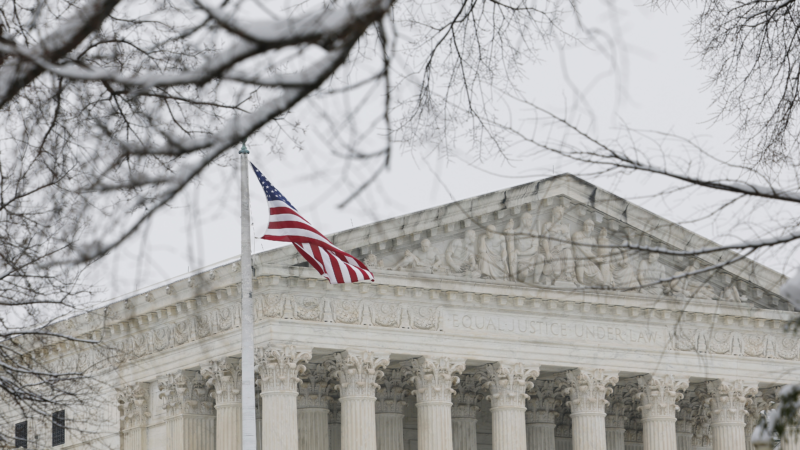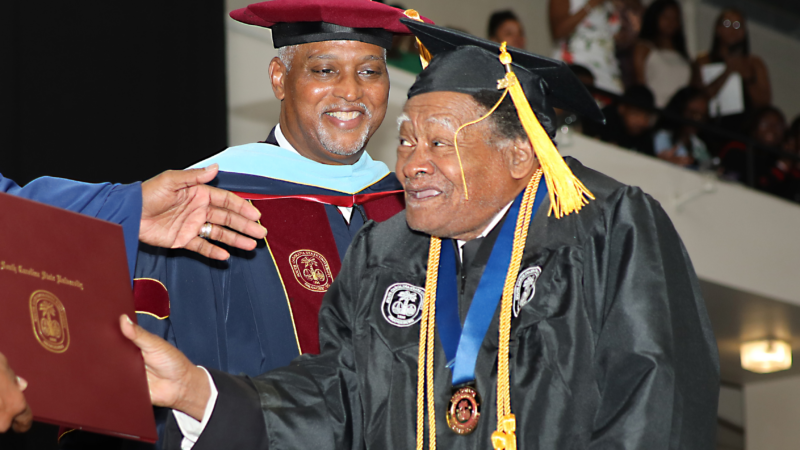Supreme Court punts on order that blocked Trump’s firing of special counsel
The Supreme Court on Friday kicked the proverbial can down the road regarding the Trump administration’s ability to fire the head of a key federal agency.
The court said it would not interfere with a lower court decision, which temporarily blocked the firing, until Feb. 26, which is when the lower court’s ruling is set to expire. Because of the short timing, the high court said it would hold the matter in abeyance, or suspension, for now.
This was the Trump administration’s first appeal to the high court in its many pending legal challenges.
Two of the liberal justices, Sonia Sotomayor and Ketanji Brown Jackson, noted their dissent and would not have entertained the Trump administration’s appeal at this point.
Conservative-leaning Justices Neil Gorsuch and Samuel Alito noted in their dissent that they would have granted the administration’s request to block the lower court order.
The dispute began Feb. 7 when Trump fired Hampton Dellinger, the head of the Office of the Special Counsel, an independent agency charged with protecting the rights of federal employees, including whistleblowers who report alleged misconduct inside the federal government.
The agency is no relation to the better-known Office of Special Counsel in the Justice Department.
Former President Joe Biden appointed Dellinger to the agency position in 2024. He was to serve a five-year term and, per Congress’ directive, could only be fired for “inefficiency, neglect of duty, or malfeasance in office.”
Dellinger challenged the firing in federal court, and on Feb. 12 a judge issued a court order that reinstated Dellinger’s job for 14 days while the judge considered the legal questions in the case.
This type of court order is typically reserved for urgent situations, and given its brief shelf life, it rarely can be appealed. Nonetheless, the Trump administration asked the U.S. Court of Appeals for the District of Columbia to make an exception, which the appellate court refused to do.
As a last resort, Trump asked the Supreme Court to block the court order, citing the need for emergency relief.
The Trump administration argued that Dellinger’s reinstatement interferes with the president’s complete power to determine who runs executive agencies. In the administration’s view, every day that Trump is unable to fill Dellinger’s position causes “extraordinary and irreparable harm” to the executive branch.
The current Supreme Court, dominated by a 6-to-3 conservative majority, has for years been dancing around this and similar issues but has never reversed the court’s 1935 precedent declaring that presidents may only fire such agency heads for cause, meaning bad conduct.
He graduated from college at age 79. A campus tragedy inspired him to enroll
The Vietnam veteran and former businessman got his diploma from South Carolina State University on Friday. He signed up for classes after hearing about the police killing of protesting students in 1968.
India and Pakistan accuse each other of violating ceasefire hours after reaching deal
The blame game began only hours after President Trump announced Saturday that the U.S. had mediated an immediate ceasefire.
The FDA approves first U.S. at-home tool as a Pap-smear alternative
Women can use a wand to collect a vaginal sample, then mail it to a lab that will screen for cervical cancer. The device will be available by prescription through a telehealth service.
U.S. and China begin talks amid tensions over Trump’s tariff war
The meetings between top U.S. and Chinese officials in Geneva represent the first potential efforts to end a trade war that has frazzled financial markets.
Ukraine’s allies push for 30-day ceasefire starting Monday
U.K. Prime Minister says Europe and the U.S. are "calling out" Putin, by proposing a 30-day unconditional ceasefire starting Monday.
Opinion: My hometown pope
News of an American pope, and a Chicagoan, causes NPR's Scott Simon to remember what it was like attending Mass in his hometown.






